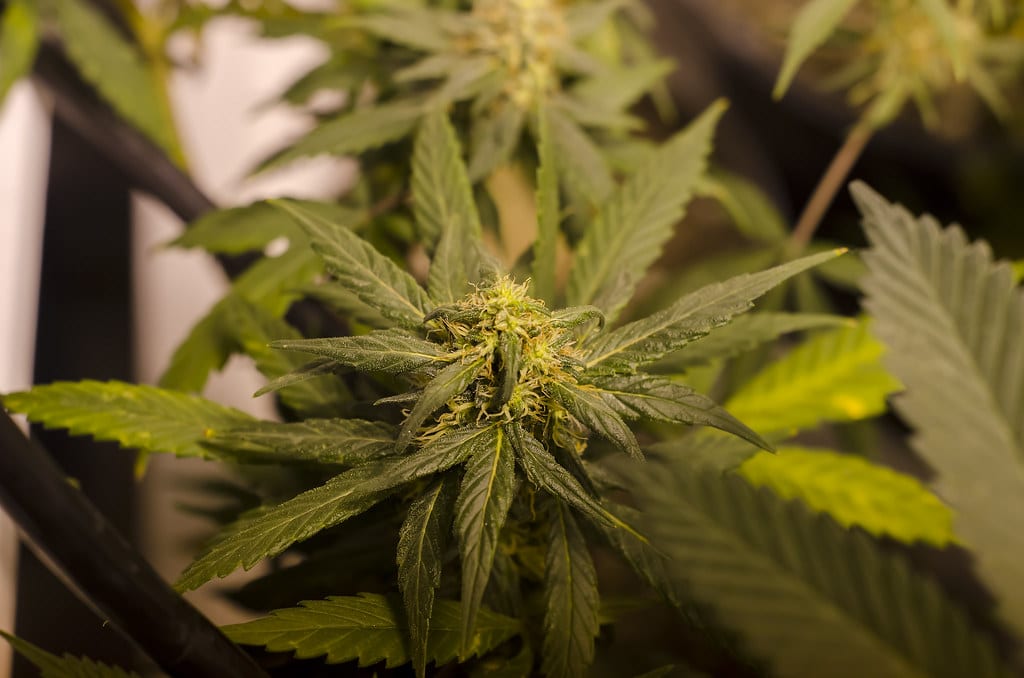There are a large number of reasons why the US Trademark Office can deny an application for trademark registration. Nothing is automatic about registration. This is one reason it is important to retain experienced trademark attorneys to provide advice and legal counsel leading up to the application and to shepherd the application through the Trademark Office.
One basis for refusing registration is the so-called “unlawful use” doctrine. This doctrine provides that trademark registration is not allowed — is to be refused — where the trademark or service mark is used in connection with some “unlawful” purpose or product. In more legal terms, a trademark can only be registered if it is being “used” in interstate commerce. However, as a matter of legalities, the Trademark Office does not consider use of a trademark in connection with unlawful products or shipments to be “use in interstate commerce.” Thus, trademark registration will be refused. As discussed below, “unlawful use” can also be grounds for invalidating a trademark registration.
Recently, unlawful use has generated quite a bit of controversy with respect to the sale of cannabis products. Many states have passed laws decriminalizing the use of medicinal and recreational cannabis. But, marijuana use and possession remain illegal at the federal level. As such, a number of efforts to register trademarks at the federal level have been refused because the trademarks were used in relation to “unlawful” cannabis products or services.
This was the result recently reached by the Trademark Trial and Appeal Board (“TTAB”) with respect to purported use of hemp oil as an ingredient in a dietary supplement. See In re Stanley Brothers Social Enterprises, LLC, 2020 U.S.P.Q.2d 10658 (TTAB, June 16, 2020). The record in that case showed that the applicant’s goods contained a chemical called cannabidiol which is an extract of the cannabis plant. As such, as far as the Trademark Office and the TTAB was concerned, the applicant’s dietary supplement contained cannabis (despite being labeled as a product containing “hemp oil extract”). The Examining Attorney refused registration and the TTAB affirmed.
However, there are other ways for a business to violate federal laws. Examples include mislabeling products or selling products without the requisite approval from the relevant federal industry regulatory agency. An illustrative case is CreAgri, Inc. v. USANA Health Sciences, Inc., 474 F. 3d 626 (9th Circuit 2007) involving a priority dispute over use of the trademark OLIVENOL. CreAgri successfully registered the trademark in 2001. USANA Health Sciences attempted to register the same trademark in 2002 which led to a legal fight between the two companies. During the case, USANA used the unlawful use doctrine in an effort to have the CreAgri registration held invalid. It turned out that, for more than two years, CreAgri inaccurately labeled its bottles of dietary supplements. For the first year, CreAgri claimed that each tablet in the bottle contained 25 mg of a chemical called hydroxytyrosol. That claim was false. After about a year, CreAgri was forced to change its labeling to indicate that only 5 mg of the substance was contained in each tablet. Even that claim was false. More testing showed that only 3 mg of hydroxytyrosol was contained in each tablet and the label was changed again.
Selling mislabeled products is a violation of federal law. USANA argued that the CreAgri trademark registration was invalid because it was used in commerce with respect to unlawful products. The trial court agreed and invalidated CreAgri’s registration.
On appeal, the Ninth Circuit Court of Appeals affirmed. According to the court, the result was more than justified by the number of bottles sold and the excessiveness and persistency of the false labelling. The court distinguished a case where General Mills and a competing cereal maker fought over the FIBER ONE trademark. In that case, General Mills admittedly sold seven boxes of cereal that were mislabeled. But General Mills corrected the mistake immediately and hundreds of thousands of correctly-labeled boxes were sold. For the court, a mistake involving seven boxes of cereal was not “material” enough to justify invalidating a trademark registration. However, the opposite was true with respect to CreAgri’s mislabeled supplements.
For more information or if you have questions about creating and registering a trademark, contact the trademark lawyers at Revision Legal at 231-714-0100.




